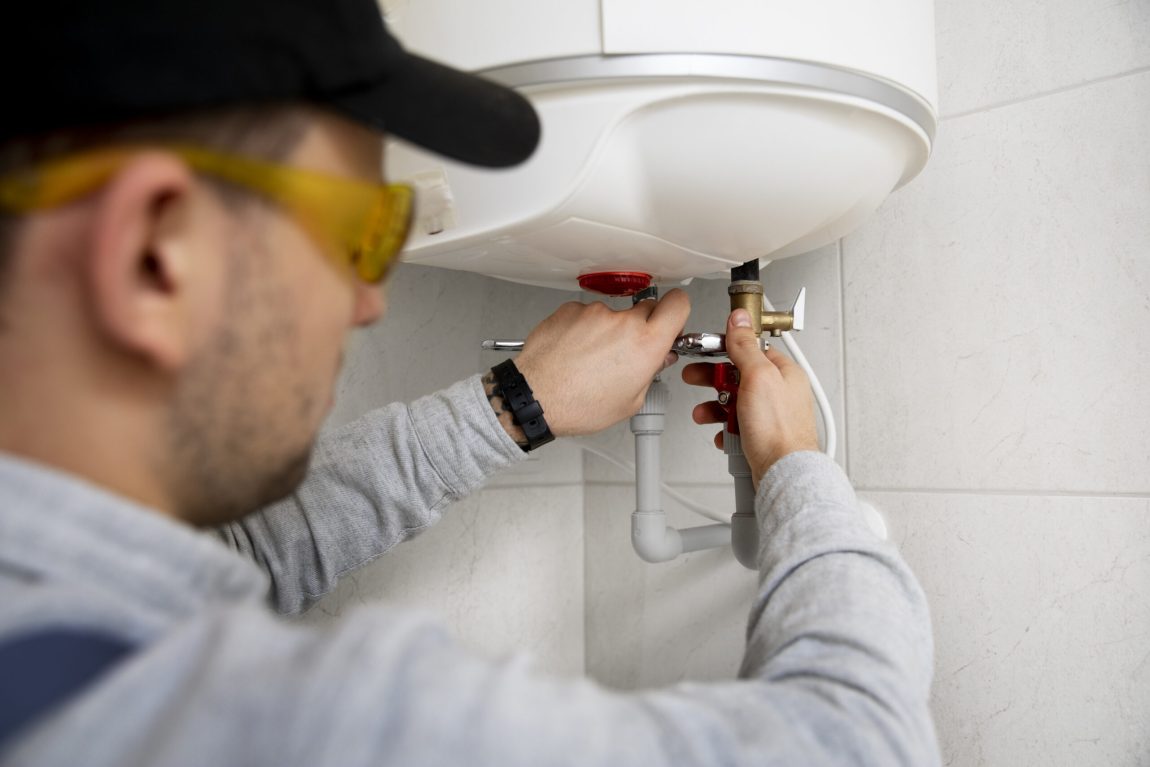Handling a plumbing emergency promptly can prevent extensive water damage and costly repairs. With Bank Holiday weekend approaching, here is a step-by-step guide to help you manage such situations effectively:
Immediate Actions During a Plumbing Emergency
1. Shut Off the Water Supply
- Main Valve: Locate and turn off your home’s main stop tap. This is typically found in basements, garages, undersink etc. Turning it clockwise will stop the water flow .
- Fixture-Specific Valve: For localised issues (e.g., a leaking sink), shut off the valve directly beneath the affected fixture
2. Turn Off the Water Heater
- Gas Water Heater: Set the thermostat to “off” or close the gas supply valve.
- Electric Water Heater: Switch off the breaker labelled boiler in your electrical panel.
This prevents potential overheating or damage to the unit
3. Drain Remaining Water
Open all taps including outdoor taps to drain the remaining water from the pipes. This helps reduce pressure and minimises potential leaks
4. Address Small Leaks Temporarily
- Pipe Tape or Towels: Use pipe tape or wrap towels around small leaks to contain water until professional help arrives .
- Buckets and Rags: Place buckets under leaks and use rags to soak up water, preventing further damage
5. Avoid Electrical Hazards
If water is near electrical outlets or appliances, turn off the electricity at the circuit breaker to prevent shocks or fires.
6. Call an Emergency Plumber
Once immediate measures are in place, contact a Bath professional emergency plumber. Provide detailed information about the issue to expedite repairs, photos and videos can help speed up the emergency plumbing dianostics.
Essential Emergency Plumbing Kit
Having the following items on hand can help manage minor issues:
- Adjustable wrench
- Plunger
- Pipe tape
- Buckets
- Rags or towels
- Torch
- Temporary pipe repair clamps
- Push-to-connect fittings for quick fixes.
Preventive Measures
- Regular Inspections: Schedule annual plumbing inspections to detect and address issues early .
- Proper Disposal: Avoid pouring grease, oils, or food scraps down the drain to prevent clogs .
- Pipe Insulation: Insulate exposed pipes to prevent freezing during cold weather .
- Smart Leak Detectors: Install devices that alert you to leaks, allowing for prompt action.
By acting swiftly and having the right tools and knowledge, you can effectively manage plumbing emergencies and minimise potential damage. However it’s important to always call a professional when the problem is small and don’t take risks leaving drips and leaks to get much bigger. For a reliable emergency plumber in Bath call us today and enjoy your leak free bank holiday!
